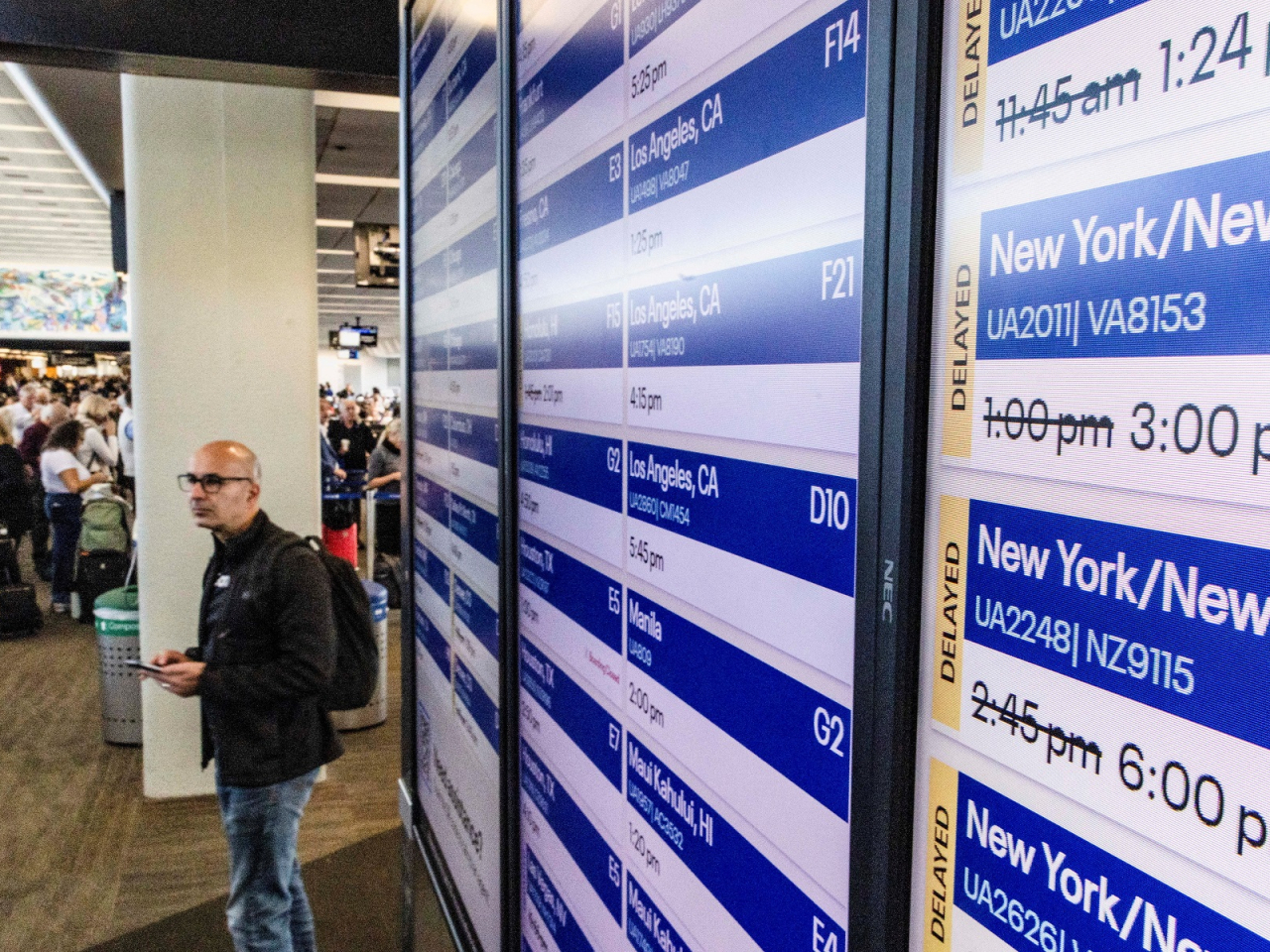US airlines scrambled on Thursday to rejig schedules and field calls from anxious customers after the Trump administration ordered flight reductions at major airports due to a shortage of air traffic controllers during the longest government shutdown in history.
The cuts, set to begin on Friday, were expected to hit hundreds of thousands of travellers with little notice.
Aviation analytics firm Cirium estimated the reductions would cancel up to 1,800 flights and cut 268,000 airline seats a day in the US.
International flights are not affected.
The low-demand travel period made it easier for airlines to rebook passengers by cutting flight frequencies on some routes and using larger planes.
Analysts predict the impact on earnings will be modest, provided the shutdown ends before the peak Thanksgiving travel period.
Transportation Secretary Sean Duffy on Wednesday ordered 10 percent flight cuts to start on Friday at 40 major US airports, including in New York, Los Angeles and Chicago, affecting both commercial and cargo services.
The Federal Aviation Administration revised the plan and said late on Thursday that airlines must cut four percent of domestic flights starting at 6am Eastern Standard Time on Friday daily through Monday, then ramping up to a full 10 percent cut by November 14.
The FAA is also restricting space launches but not requiring cuts to international flights.
The FAA also warned it could reject specific cuts if they disproportionately impacted certain communities and could cut up to 10 percent of general aviation flights at high-traffic airports if staffing issues arose.
Airlines face the challenge of adjusting flight schedules on short notice while minimising the impact on passengers and crew members.
In a memo to staff, American Airlines Chief Operating Officer David Seymour wrote: "You deserve the same level of certainty as our customers," and noted the carrier was trying its best to avoid disrupting the work schedules of its pilots and flight attendants.
Major airlines proactively offered customers greater flexibility regarding their travel plans, a move reinforced by the Transportation Department confirming late on Thursday that passengers are entitled to a full refund.
But it said airlines are not required to provide reimbursement for hotels or meals for cancellations since they are not at fault.
The FAA cited a safety assessment of air traffic controllers in ordering the unprecedented cuts, but officials insisted it is safe. "It's safe to fly today, and it will continue to be safe to fly next week," Duffy said.
During the closure, 13,000 air traffic controllers and 50,000 security screeners have been forced to work without pay.
Absenteeism has risen to 30 percent or more at some airports as the workers turn to second jobs to feed their families or are unable to afford childcare.
Even before the shutdown, the FAA was already short about 3,500 air traffic controllers, and many were working mandatory overtime and six-day weeks.
Airlines have estimated that at least 3.2 million travellers have been delayed during the shutdown. (Reuters)





